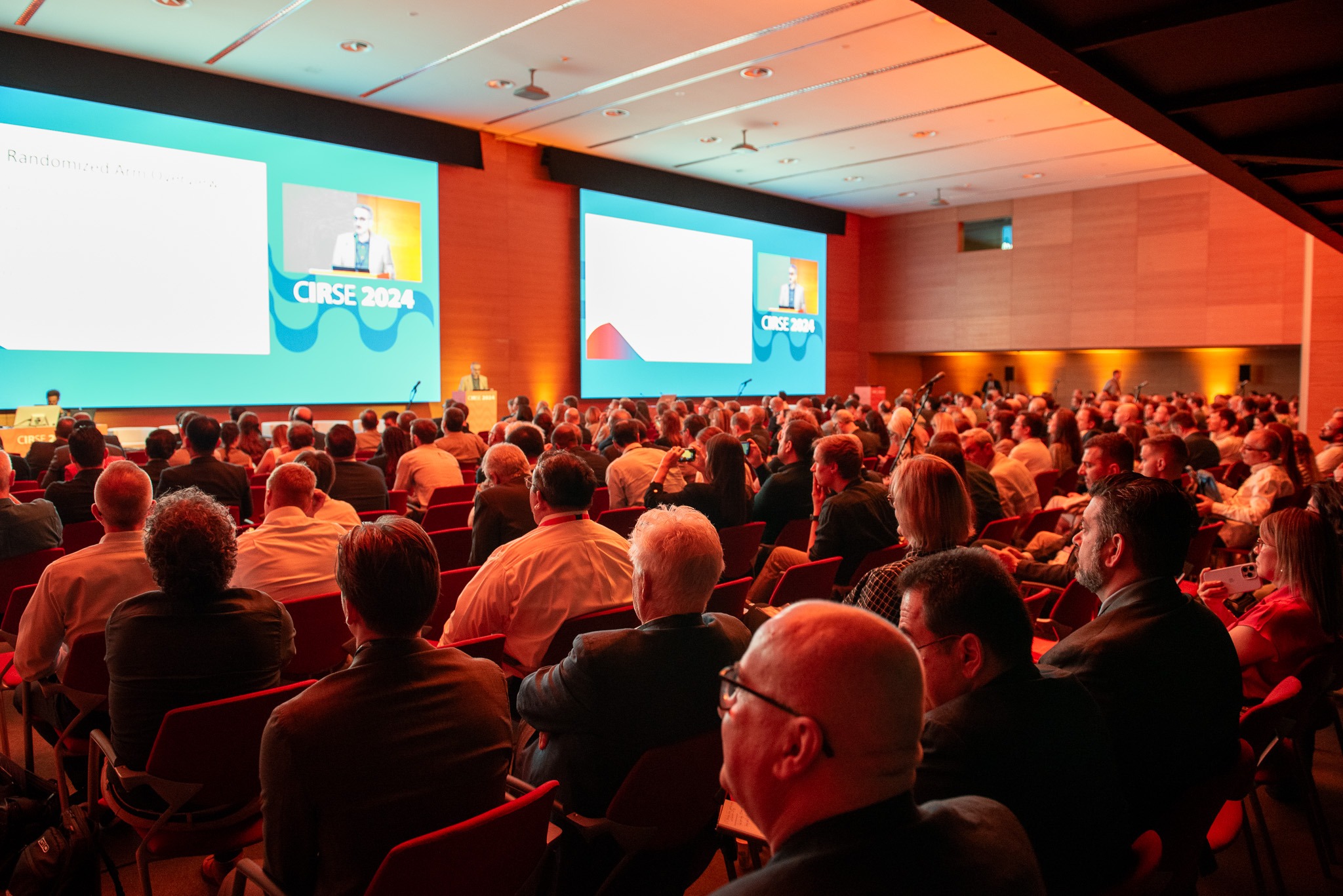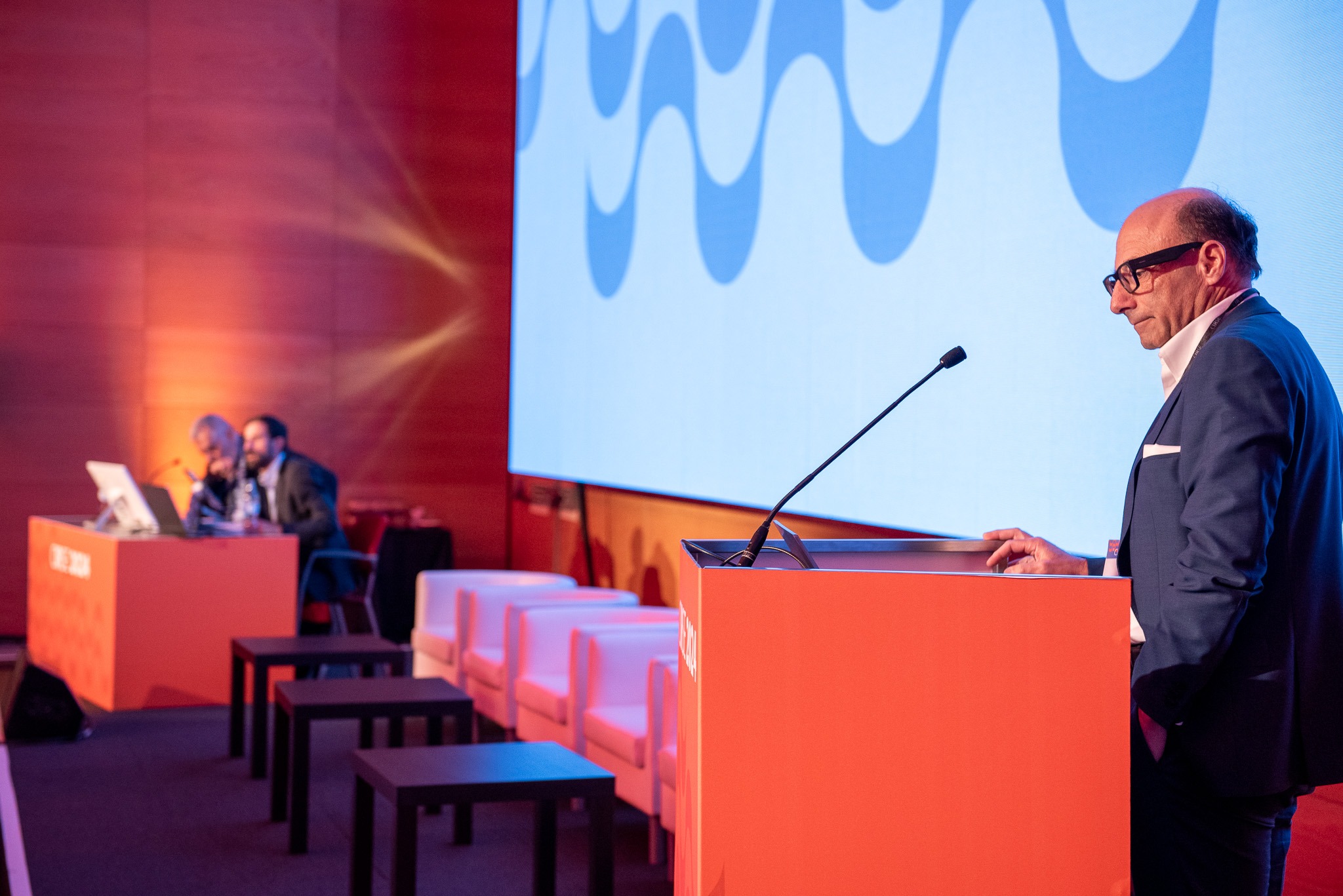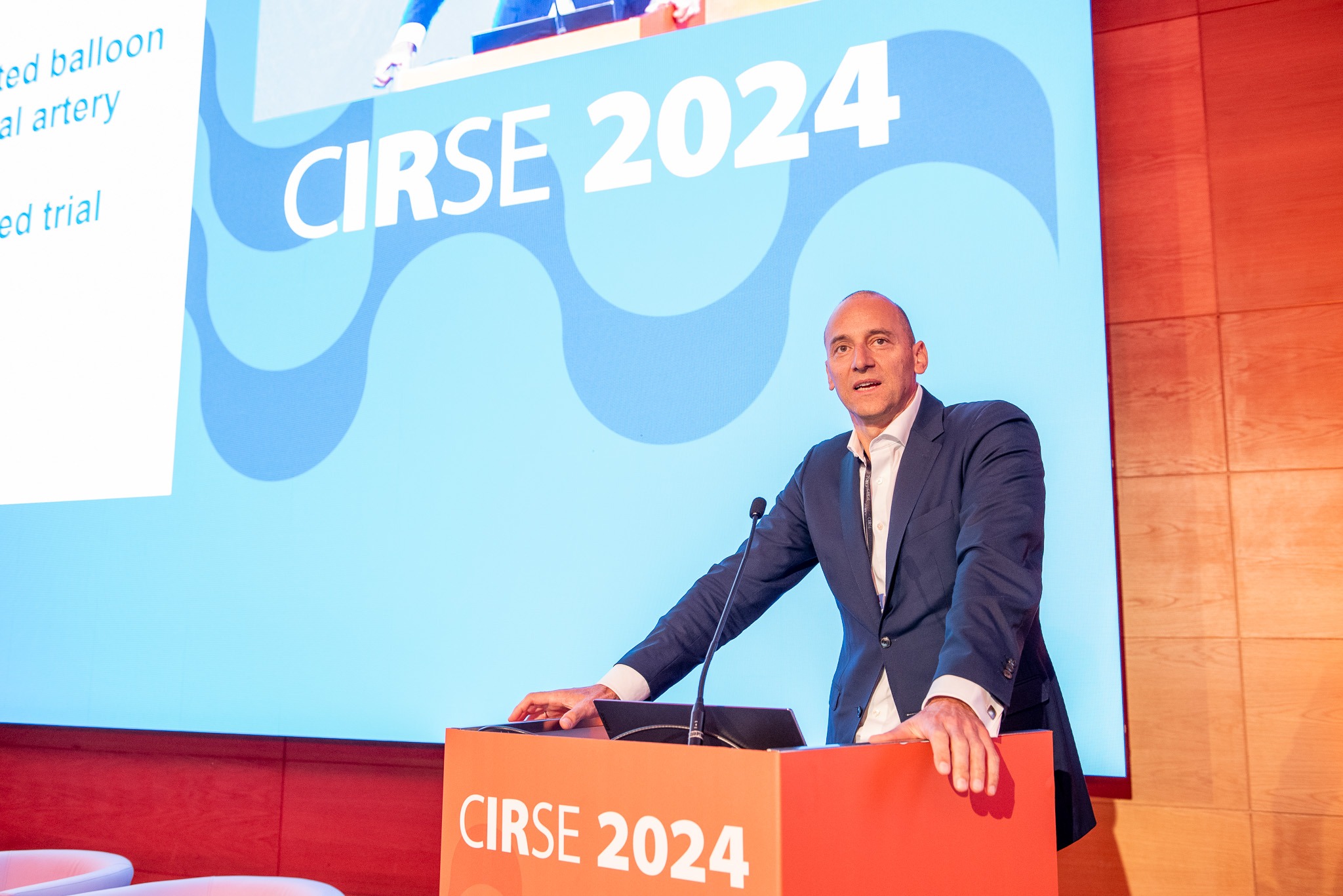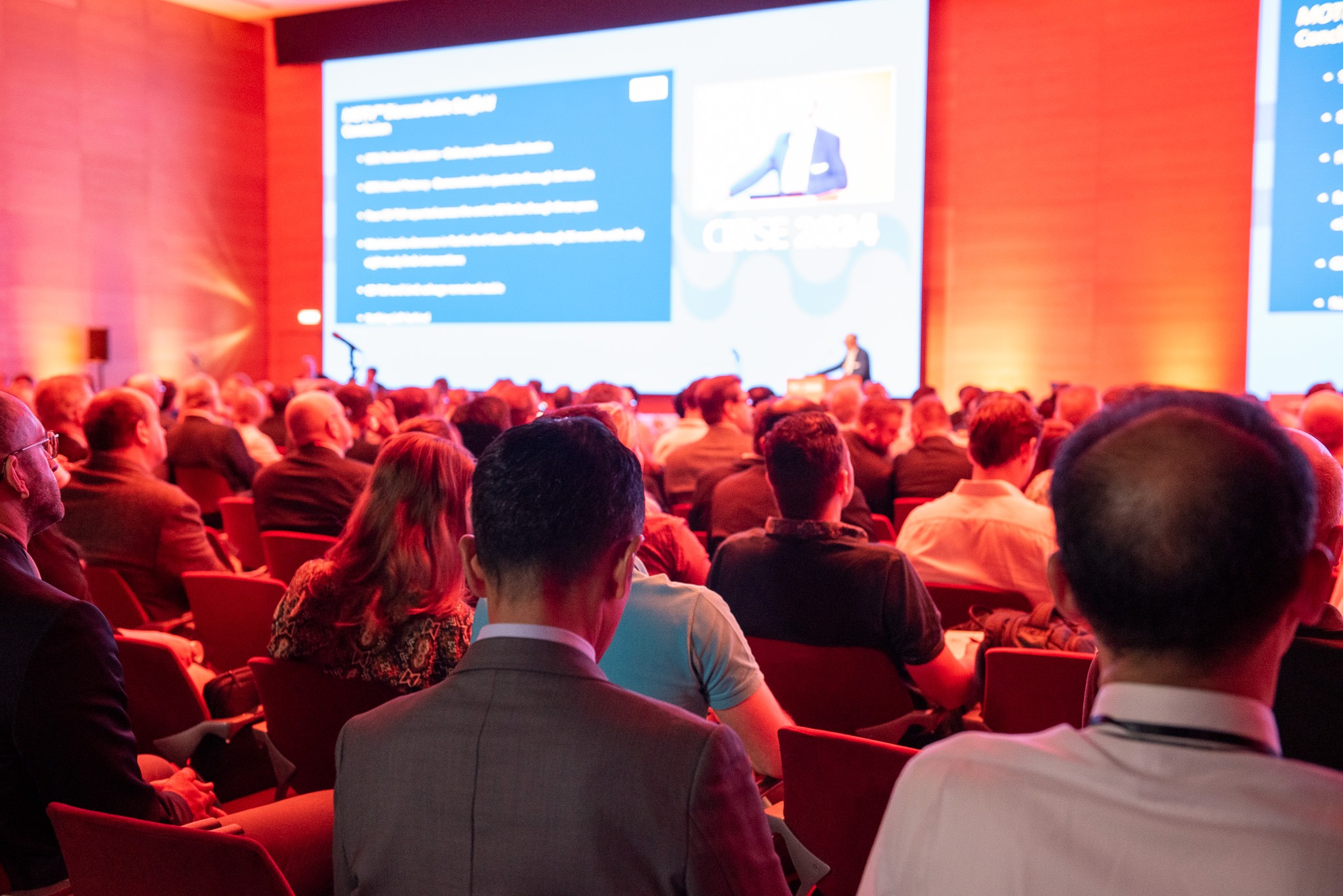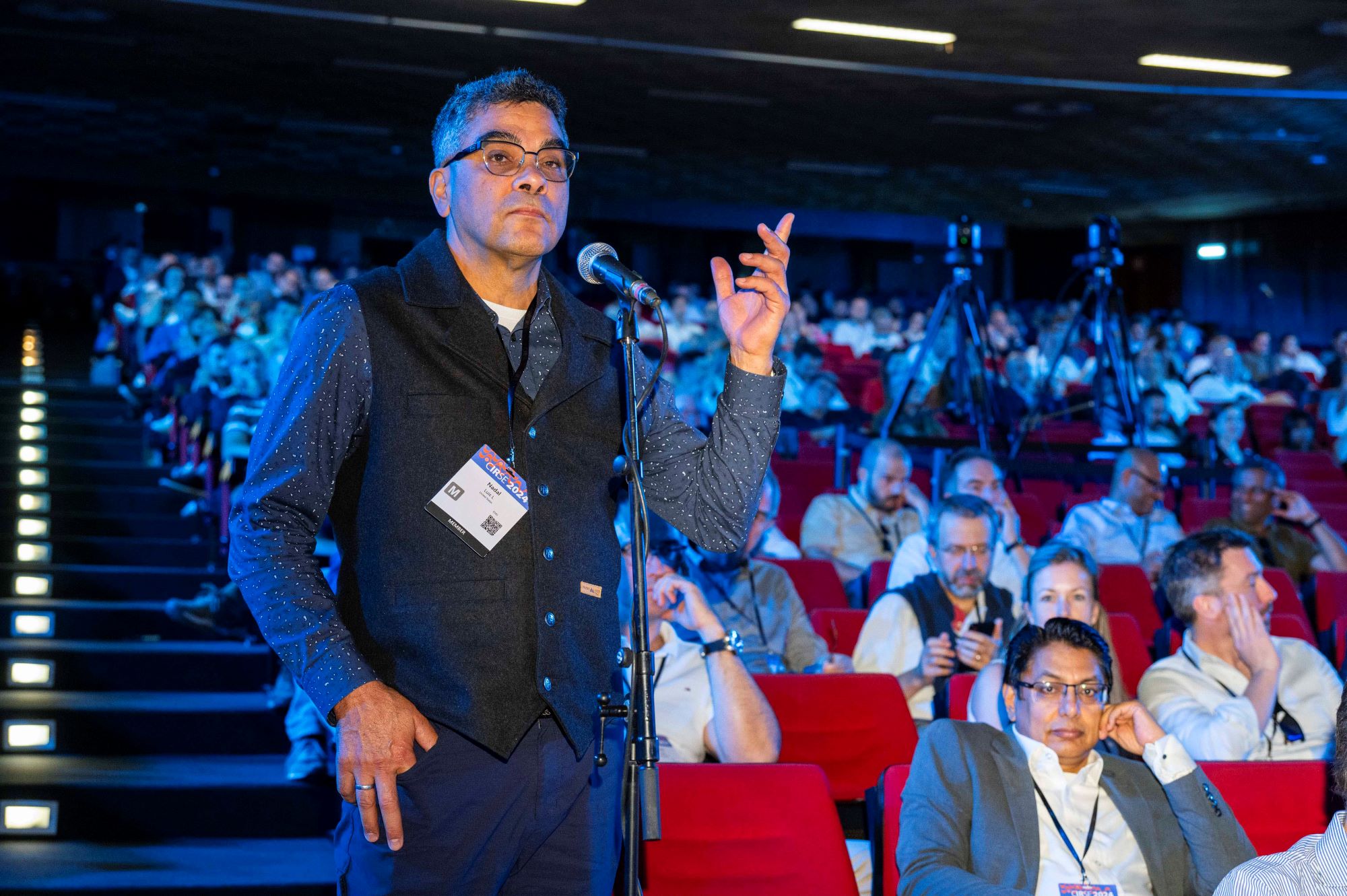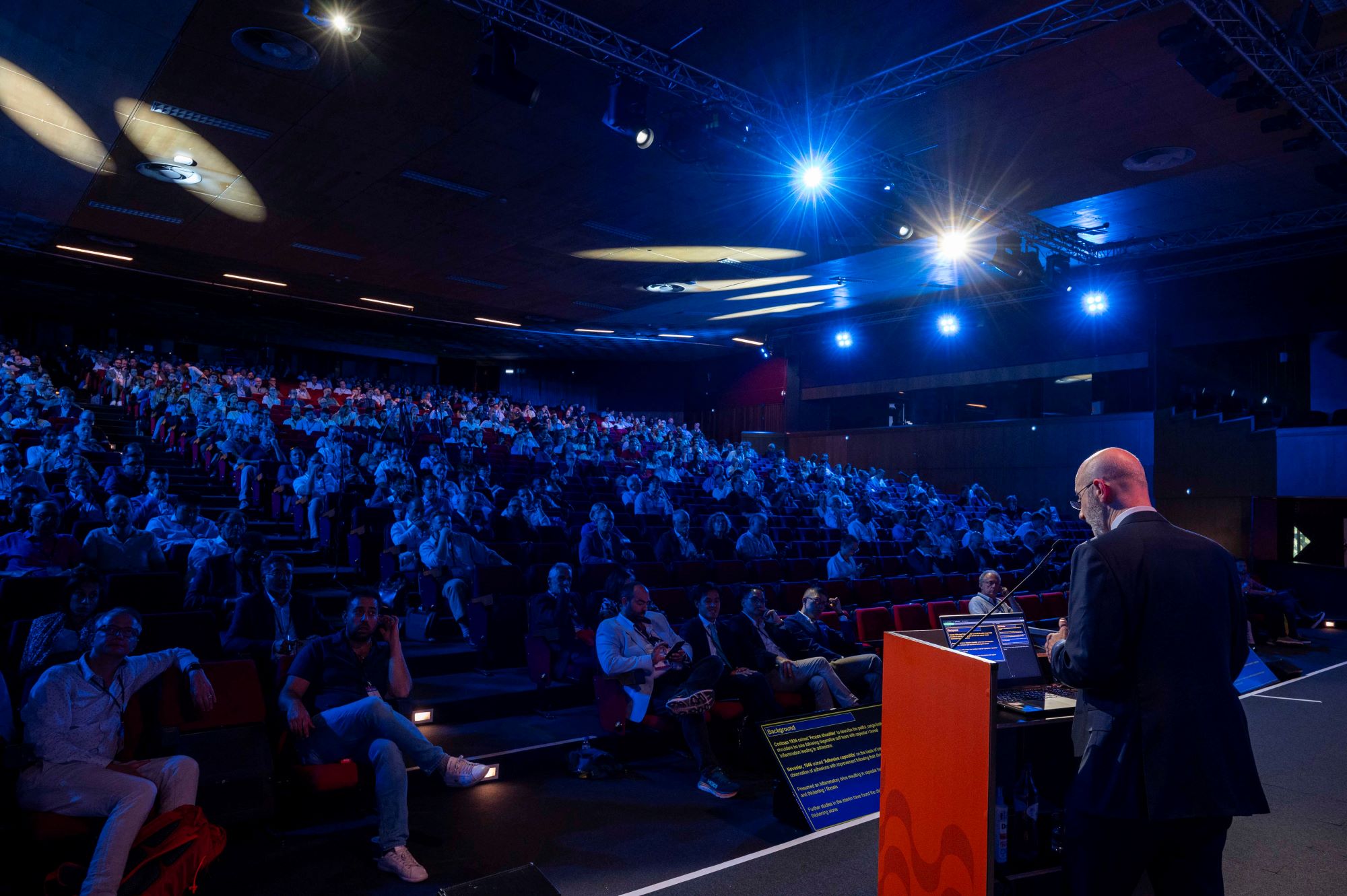Prof. Marcus Katoh opened the session speaking on MSK embolization in the knee, guiding attendees through the arterial anatomy, procedural steps, and different embolic options for knee embolization to treat pain. “It’s a straightforward technique with a low risk profile”, he stated, but cautioned that it should still be done by a physician well-experienced in embolic techniques. He stipulated that the long-term results of the technique are limited, and that there remains room for improvement regarding the optimal embolization material.
Up next, Prof. Mark Little built upon Prof. Katoh’s presentation by presenting the current evidence and ongoing trials concerning MSK embolization in the knee. He pointed out the exponentially increasing amount of data since 2015, and that the studies available using different embolics show genicular artery embolization (GAE) is safe and effective with good data concordance. After walking attendees through several studies showing good results, he gave advice on starting a service, cautioning that practitioners should decide early on how to measure outcomes, perhaps with the help of orthopaedic colleagues. As to the future, Prof. Little registered the technique with NICE in 2021, and it is up for a re-review it in October of this year. It is currently recommended as a research-only pursuit, awaiting data from currently ongoing trials and long-term outcomes.
Prof. Anthony Ryan took the stage to speak on the management of painful shoulder conditions via transarterial embolization. He began by debunking the myth that frozen shoulder syndrome is self-limiting; there is no evidence to support the theory of progression through recovery phases to full resolution without treatment. He presented the procedural steps and the anatomy of the shoulder relevant for embolization, as well as a few relevant studies. He cautioned that, though shoulder artery embolization is generally safe and appears effective, the level of evidence is “level three at best, and predominately level four. We need more, clearly.”
Dr. Yuji Okuno closed the session with a talk on MSK embolization for sports injuries, beginning with the flashy statement that two gold medallists and one silver medallist in the 2021 Tokyo Olympics have previously received embolotherapy for overuse sports injuries. He gave an overview of common overuse sports injuries, which can be difficult to manage and currently lack a singular critical treatment option. There are a few unique considerations in high-level sports overuse injuries; namely, that the injury happens over time, rather than after a single incident, and that athletes want to return to activity – and the possibility of re-injury – as soon as possible. He presented the outcomes after embolization from his own practice, which have been positive, and implored that high-quality scientific studies are still needed to increase awareness and acceptance of the technique.
Hot topic symposia also took place on interventional oncology, aortic, and IR management topics.
These and all other sessions from CIRSE 2024 continue to be available on demand via CIRSE Library!

